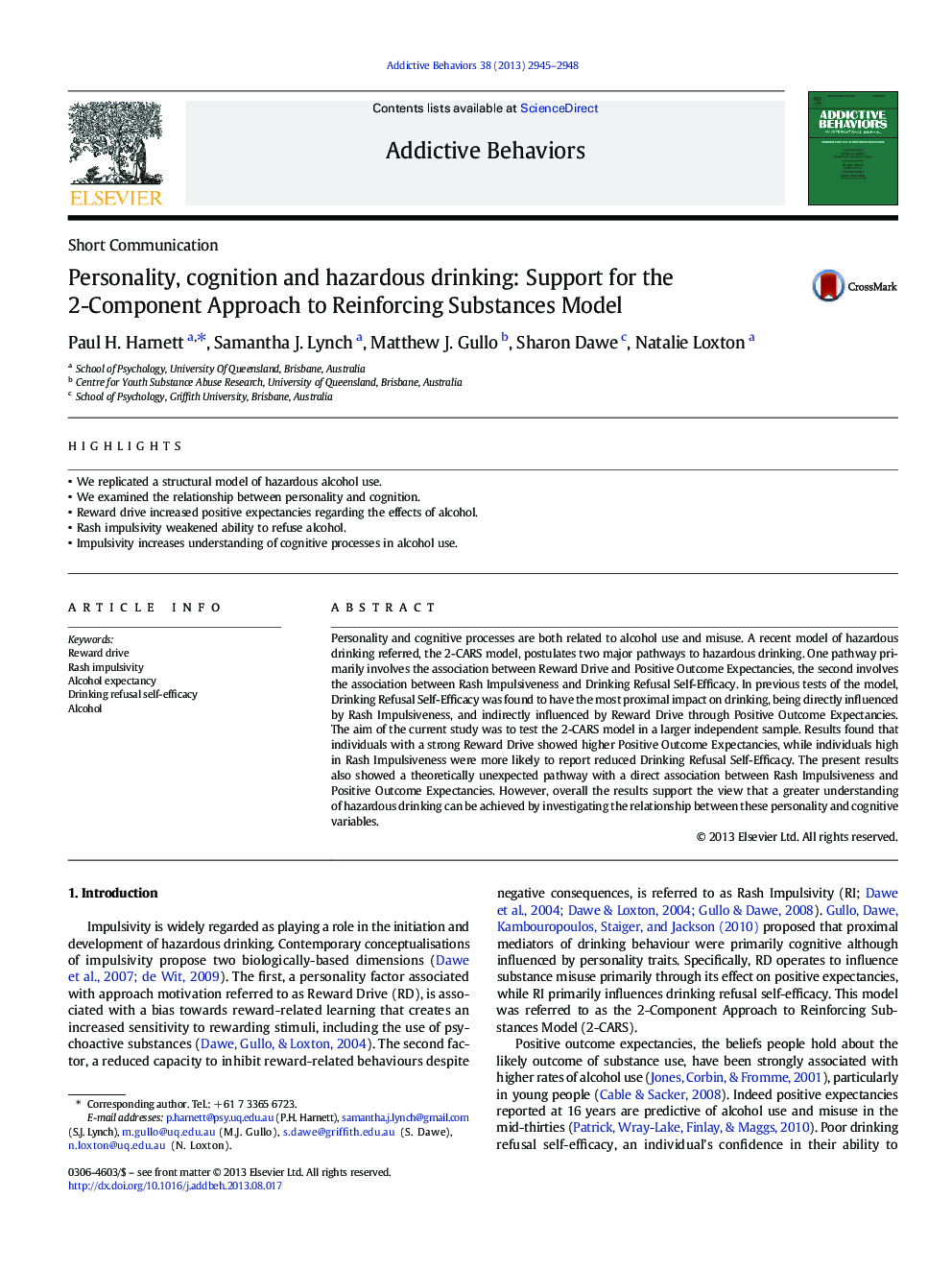| کد مقاله | کد نشریه | سال انتشار | مقاله انگلیسی | نسخه تمام متن |
|---|---|---|---|---|
| 898864 | 915345 | 2013 | 4 صفحه PDF | دانلود رایگان |

• We replicated a structural model of hazardous alcohol use.
• We examined the relationship between personality and cognition.
• Reward drive increased positive expectancies regarding the effects of alcohol.
• Rash impulsivity weakened ability to refuse alcohol.
• Impulsivity increases understanding of cognitive processes in alcohol use.
Personality and cognitive processes are both related to alcohol use and misuse. A recent model of hazardous drinking referred, the 2-CARS model, postulates two major pathways to hazardous drinking. One pathway primarily involves the association between Reward Drive and Positive Outcome Expectancies, the second involves the association between Rash Impulsiveness and Drinking Refusal Self-Efficacy. In previous tests of the model, Drinking Refusal Self-Efficacy was found to have the most proximal impact on drinking, being directly influenced by Rash Impulsiveness, and indirectly influenced by Reward Drive through Positive Outcome Expectancies. The aim of the current study was to test the 2-CARS model in a larger independent sample. Results found that individuals with a strong Reward Drive showed higher Positive Outcome Expectancies, while individuals high in Rash Impulsiveness were more likely to report reduced Drinking Refusal Self-Efficacy. The present results also showed a theoretically unexpected pathway with a direct association between Rash Impulsiveness and Positive Outcome Expectancies. However, overall the results support the view that a greater understanding of hazardous drinking can be achieved by investigating the relationship between these personality and cognitive variables.
Journal: Addictive Behaviors - Volume 38, Issue 12, December 2013, Pages 2945–2948